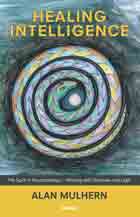Brain Change Therapy: Clinical Interventions for Self-Transformation

Book Details
- Publisher : W.W.Norton
- Published : 2012
- Cover : Hardback
- Pages : 304
- Category :
Individual Psychotherapy - Category 2 :
Neuroscience - Catalogue No : 28453
- ISBN 13 : 9780393705867
- ISBN 10 : 0393705862
There are currently no reviews
Be the first to review
Using principles from hypnosis, biofeedback, object relations therapy and cognitive therapy, therapists learn how to help their clients calm themselves, remove stress and achieve goals. With a range of techniques informed by neuroscientific understanding of how the brain controls emotion, this book allows readers to change their state of mind.
When conditions like anxiety and depression are experienced chronically, they condition neural pathways and shape a person's perception of and response to life events. As these pathways are reinforced, unhealthy neural networks turn on with increasing ease in the presence of conscious and unconscious triggers. In this groundbreaking book, Kershaw and Wade present Brain Change Therapy (BCT), a therapeutic protocol in which clients learn to manage their emotions and behaviors, and thus reduce stress and control emotional reactivity.
Drawing from the latest neuroscientific research as well as integrative principles from hypnosis, biofeedback, and cognitive therapy, BCT helps clients reach stable neurological and emotional states and thus shift perspectives, attitudes, beliefs, and personal narratives toward the positive. BCT starts with the working assumption that effective therapeutic change must inevitably include a repatterning of neural pathways, and employs "self-directed neuroplasticity" through the active practicing of focused attention. As an adjunct to these methods, it helps clients create new, empowering life experiences that can serve as the basis for new neural patterns.
The book begins by laying the foundation for body–mind and brain–body interventions by exploring the basics of the brain: its anatomy, neuroanatomy, neurophysiology, electrochemical processes, and the rhythms of the brain and body and nature. The authors set forth a detailed protocol for neuroassessment and evaluation of new clients, with particular attention to assessing a client's habitually activated emotional circuits, neural imprints, state flexibility, level of arousal, and any relevant neurobiological conditions.
The authors go on to outline BCT and its interventions geared toward stress reduction and state change, or the capacity to shift the mind from one emotional state to another and to shift the brain from one neural pattern to another. Protocols for specific presenting problems, such as fear, anxiety, and life-threatening and chronic illnesses are outlined in detail. Because of the breadth of the BCT approach, it is effective in working with individuals who are interested in shifting and conditioning peak performance states of consciousness, and the authors offer protocols for helping their clients reach peak professional performance as well.
With this book, clinicians will be able to empower their clients to find their way out of a wide range of debilitating mental states.
About the Author(s)
Carol Kershaw, EdD, is a licensed psychologist in private practice and codirector of the Milton H. Erickson Institute of Houston. She lives in Houston, Texas.
J. William Wade, PhD, is codirector of the Milton Erickson Institute in Texas. He lives in Houston, Texas.
Customer Reviews
Our customers have not yet reviewed this title. Be the first add your own review for this title.
You may also like
EMDR Solutions II - For Depression, Eating Disorders, Performance and More
Robin Shapiro
Price £32.00
Mastering Intensive Short-Term Dynamic Psychotherapy: A Roadmap to the...
Josette ten Have-de Labije
Price £48.99
The Foundations of Psychoanalytic Theories: Project for a Scientific Enough...
Vesa Talvitie
Price £24.99
Healing Intelligence: The Spirit in Psychotherapy - Working with Darkness and...
Alan Mulhern
Price £28.99







